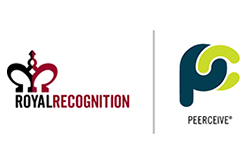5 Ways Emplyee Recognition Helps Prevent Workplace Alienation
 When employees feel disconnected from their work or their organization, they are more likely to experience decreased motivation, lower engagement, and diminished job satisfaction. This sense of detachment, known as workplace alienation, can have negative ripple effects on the company’s culture, quality, and bottom line. A powerful tool to counteract workplace alienation is employee recognition.
When employees feel disconnected from their work or their organization, they are more likely to experience decreased motivation, lower engagement, and diminished job satisfaction. This sense of detachment, known as workplace alienation, can have negative ripple effects on the company’s culture, quality, and bottom line. A powerful tool to counteract workplace alienation is employee recognition.
What is Workplace Alienation?
Workplace alienation occurs when employees feel estranged or disconnected from their job, their colleagues, or the organization as a whole. This detachment can manifest in a number of ways, including:
- Lack of motivation: Employees feel like their efforts don’t make a difference.
- Feeling undervalued: Employees sense that their contributions are overlooked.
- Isolation: Employees don’t feel connected to their team or company culture.
- Loss of purpose: Employees no longer see how their work fits into the bigger picture of the organization’s goals.
Alienation can stem from poor management, lack of communication, and failure to recognize employees’ hard work. When employees don’t feel appreciated, they are more likely to disengage, which negatively impacts both their individual performance and the overall culture of the company.
The Role of Employee Recognition
Employee recognition is an effective proven strategy to combat workplace alienation. Recognizing employees for their efforts and achievements helps them feel valued, motivated, and connected to the larger goals of the organization. When employees feel appreciated, they are more likely to remain intrinsically motivated, engaged, and committed to their work.
Here’s how employee recognition can help prevent workplace alienation:
1. Increases Motivation
Recognition provides positive reinforcement, which can motivate employees to continue doing their best. Whether it's a custom award or a small token like a thank-you card, the act of being recognized for stellar performance helps employees see that their contributions matter. This recognition sparks a sense of accomplishment and encourages them to keep striving toward excellence.
2. Fosters Commitment
When employees feel appreciated, they are more likely to be committed to their organization. Recognition not only rewards good work but also strengthens the bond between the employee and the company. Feeling valued leads employees to see their role as more than just a paycheck - it becomes part of a larger mission.
3. Promotes a Sense of Control
Recognition helps employees feel more in control of their career paths and professional growth. When they see that their hard work is acknowledged, they are more likely to take ownership of their role and look for opportunities to grow within the company. It fosters a sense of agency and reduces feelings of helplessness or invisibility in the workplace.
4. Makes Employees Feel Valuable
Employees want to know that their work has meaning. Awards especially can act as revered symbols of an employee’s value within the organization. These tangible awards serve as reminders that the employee’s contributions are important and appreciated, both by their peers and by leadership.
5. Gives Work Meaning
When employees receive recognition, it helps them connect their everyday tasks to the broader goals of the company. Recognition creates a sense of purpose, as employees realize that their individual efforts contribute to the company’s success. This connection between individual contributions and organizational achievements helps employees feel that their work truly matters.
Conclusion
Employee recognition is more than just a feel-good gesture; it’s a crucial strategy for combating workplace alienation. By acknowledging and rewarding employees for their contributions, organizations can help employees feel motivated, committed, in control, valuable, and connected to a larger purpose.



 This post is locked to comments.
This post is locked to comments.
